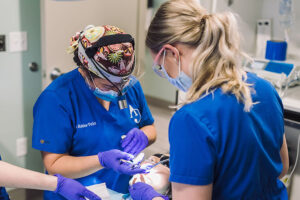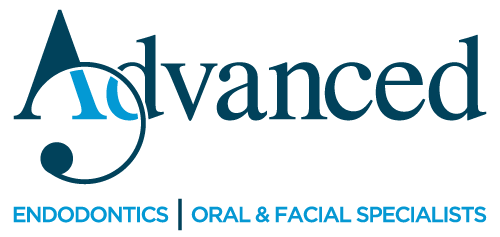 Even though your permanent teeth should be just that – permanent – there are times you might need tooth extractions. Sometimes, a tooth has been too badly damaged from trauma, decay or infection to be fixed. Some teeth require extraction because a patient’s mouth does not have enough room for normal alignment of teeth and crowding is present. Teeth can also be extracted in preparation for Orthodontic treatment to align teeth for a beautiful smile.
Even though your permanent teeth should be just that – permanent – there are times you might need tooth extractions. Sometimes, a tooth has been too badly damaged from trauma, decay or infection to be fixed. Some teeth require extraction because a patient’s mouth does not have enough room for normal alignment of teeth and crowding is present. Teeth can also be extracted in preparation for Orthodontic treatment to align teeth for a beautiful smile.
No matter why it’s being done, the thought of tooth removal can lead to a lot of anxiety, especially if you don’t know what to expect. To help alleviate some tension, here’s what you need to know about tooth extractions and the recovery afterward. If you still want to know more, please contact Advanced Oral & Facial Specialists today.
Tooth Removal Process
One of the first things we do after you are comfortable in the dental chair is to administer a sedative if IV sedation is necessary. Then, local anesthesia is given to numb your tooth, jawbone, and gums near the procedure area. When the anesthesia has taken effect, your oral surgeon will use different techniques like rocking the tooth to widen the socket or sectioning your tooth with a special instrument to be removed in smaller pieces. While that is happening, you should expect to feel pressure, but not pain. The anesthesia prevents you from feeling any pain. We ensure every patient knows that he or she should let us know immediately if there is any pain. If you have any issues with dental pain phobia or concerns that your mouth doesn’t get numb enough, IV sedation is required so that you are comfortable the entire time. Our goal is always to ensure your safety with as much comfort and as little pain as possible.
Dental Surgery Recovery
Perhaps the most important part of dental surgery recovery is to let a blood clot form to stop the bleeding and start healing. Your oral surgery team will instruct you on how to bite on gauze and what to look for.
Once the clot forms, it needs to stay. That means you should not rinse vigorously, use straws, smoke or brush your teeth in the area of the extraction for at least 72 hours. You should also try to avoid activities that could raise your blood pressure and dislodge the clot.
You will be instructed on the use of ice and pain medication to reduce swelling and pain. Be sure to use any medication as directed.
Except for brushing the area of the tooth removal, it is important to resume your normal dental routine after 24 hours. Brushing and flossing your teeth at least once a day will speed healing and help keep your mouth clean. If you have heavy bleeding, severe pain, continued swelling for two to three days, or a reaction to the medication, contact our office immediately.
If you have any questions about tooth removal or dental surgery recovery, we will be happy to help. Just contact Advanced Oral & Facial Specialists today.

